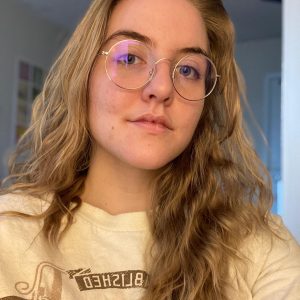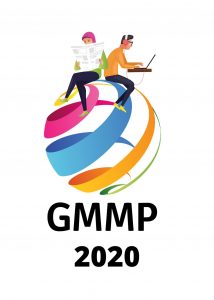Drew-Anne Glennie is a third year student majoring in PCJ and International Relations and minoring in Women and Gender Studies. This fall, as part of PCJ499, she served as a Research Intern at World Association for Christian Communication.

This fall, I interned for WACC through PCJ499. I worked as a Research Assistant for the 2020 Global Media Monitoring Project (GMMP). Every five years since 1995, the GMMP has conducted a worldwide study of how gender is presented in news media with the intention of holding media accountable for their role in gender inequality. These findings are used by a variety of groups, including women’s rights organizations, activists, policy makers, educational institutions, and even some academics whose work I studied through this internship. Through my PCJ499 internship, I got to help make this project happen, and I’m excited to be officially recognized as a contributor!
In my role, I was responsible for finding and documenting scholarship on gender and news media that had been published since the last report in 2015. Specifically, I researched #MeToo coverage, gender-based violence (GBV) coverage, media sexism/stereotypes, and developments in the media landscape. From these texts, I identified the main topics and themes that had come under scholarly scrutiny: these included media framing, sourcing practices, the impact of media coverage on women in politics, blame for GBV being attributed on individual basis as opposed to a societal one, and the prevalence of sexist harassment against female journalists. From there, I created the conceptual framework and wrote the first draft of the literature review, which will inform the direction of analysis of the 2020 GMMP data. I also got the opportunity to investigate the gendered and racialized aspects of media coverage of US Vice-President Kamala Harris after the US election in November.
I went into this internship expecting it to help me develop skills related to a career in  journalism — it absolutely did. Despite my experience with both feminism and journalism, I had no idea how far the news media industry still has to go to achieve gender equality. Through this internship, I learned so much about the stereotypes and sexism that continue to plague female subjects and reporters, as well as how biases distort the news media that we consume and take as fact. While initially disheartening, it eventually gave me even more drive to go into journalism and be a force for change in the industry.
journalism — it absolutely did. Despite my experience with both feminism and journalism, I had no idea how far the news media industry still has to go to achieve gender equality. Through this internship, I learned so much about the stereotypes and sexism that continue to plague female subjects and reporters, as well as how biases distort the news media that we consume and take as fact. While initially disheartening, it eventually gave me even more drive to go into journalism and be a force for change in the industry.
Unanticipated, however, was how much of what I learned applies in the context of my studies in Peace, Conflict, and Justice. For the first two, this internship made me reflect on how gender issues in news media contributes to our understanding of peace and conflict situations, given that this is one of the main outlets through which we hear about them regularly. For the latter, I grappled with how we can create more just news media coverage across gender, race, and class. Moreover, some scholars have written on how news media both furthers and hinders causes that are pursuing justice, not only in grand cases like #MeToo, but also on a more individual level with cases of gender-based violence or sexist harassment, for instance.
Overall, this internship was an amazing experience. I am so proud to have been a part of such an important piece of research, and I will carry the insights I gained with me through the rest of my time in PCJ and my future career.